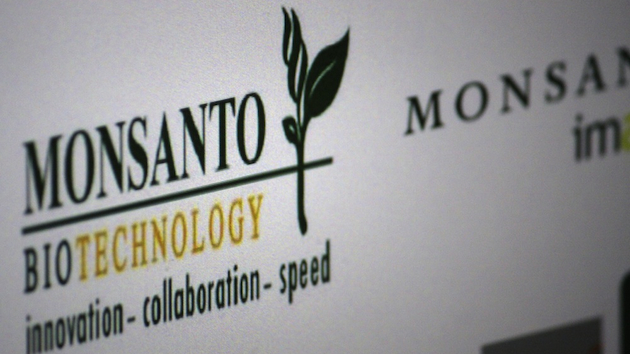
<a href="http://www.shutterstock.com/gallery-320989p1.html?cr=00&pl=edit-00">360b</a> / <a href="http://www.shutterstock.com/editorial?cr=00&pl=edit-00">Shutterstock.com</a>
After four months of hot pursuit, genetically modified seed/pesticide giant Monsanto formally ended its bid to buy rival Syngenta Wednesday—at least for now. Earlier in the week, Monsanto had sweetened its offer for the Swiss agrochemical behemoth—most famous for its controversial atrazine herbicide and neonicotinoid pesticides—to $47 billion, in an effort to convince Syngenta’s management and shareholders to accept the merger. They balked, and Monsanto management opted to halt the effort, declaring in a press release that it would instead “focus on its growth opportunities built on its existing core business to deliver the next wave of transformational solutions for agriculture.”
However, Monsanto may just be pausing, not fully halting, its buyout push. The company’s press release states that it’s “no longer pursuing [the] current proposal” (emphasis added) to buy its rival, and quickly added that the combination “would have created tremendous value for shareowners of both companies and farmers.” And as Dow Jones’ Jacob Bunge notes, Monsanto CEO Hugh Grant “has coveted Syngenta since at least 2011, and said in a June interview that he viewed the effort as ‘a long game.'”
The logic that has driven Monsanto’s zeal for a deal remains in place: It wants to diversify away from its reliance on seeds by buying Syngenta, the world’s biggest purveyor of pesticides (more on that here).
Meanwhile, Monsanto has been actively hyping up a new generation of pesticides, still in the development stage, which work by killing crop-chomping pests by silencing certain genes. But the company doesn’t expect the novel sprays to hit the market until 2020—a timeline that may be overly optimistic, as I show here.

















